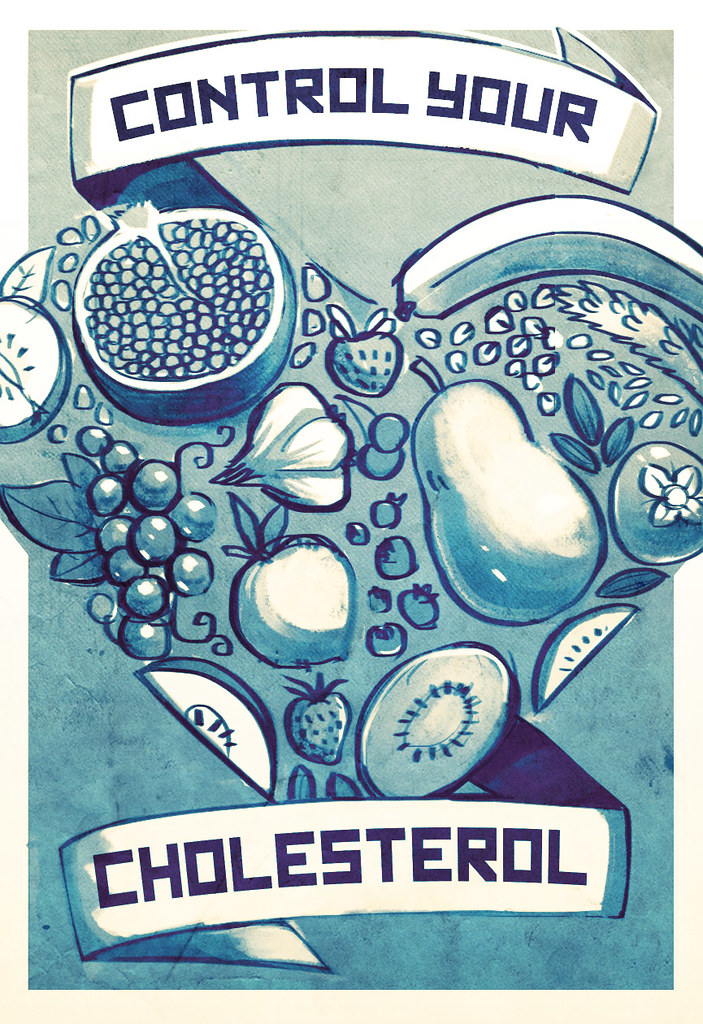
As we navigate the journey of life, it’s perfectly natural to find ourselves increasingly attuned to the subtle shifts that occur in our memory, focus, and decision-making capabilities. While some degree of cognitive change is an inherent part of the normal aging process, medical experts are issuing a clear and urgent warning: certain daily habits, often overlooked or underestimated, possess the power to quietly but relentlessly accelerate this mental decline, sometimes even faster than widely recognized risks like smoking.
Dr. Salvatore Napoli, a distinguished neurologist at the New England Center for Neurology and Infusion, has brought three specific lifestyle behaviors into sharp focus, urging everyone to place them firmly on their radar. These primary culprits are smoking, physical inactivity, and the insidious presence of chronic stress. This article delves into these and other critical modifiable factors, drawing on robust research and expert insights to illuminate the profound connection between our everyday choices and the long-term health of our most vital organ – the brain.
Indeed, the encouraging news from the forefront of medical research underscores a powerful truth: lifestyle is, without a doubt, the most potent tool in our healthy aging toolkit. While genetics certainly play a role, especially in extreme longevity, for individuals aspiring to live vibrantly into their 80s or even early 90s, the control largely rests in their hands. The collective wisdom from multiple studies consistently reinforces a hopeful message: it is never too late to initiate protective measures for your brain, making conscious choices today that can safeguard your cognitive future for years to come.

1. **Smoking: A Direct Hit to Brain Function**It is universally acknowledged that smoking inflicts significant damage upon the lungs and heart, leading to a myriad of serious health complications. However, the impact of this habit on brain health is equally, if not more, serious and often less understood. Tobacco smoke is a complex cocktail containing thousands of chemicals, with dozens identified as known carcinogens, systematically poisoning the body.
Beyond these immediate toxins, nicotine, a primary component of tobacco, plays a detrimental role by constricting blood vessels throughout the body, including those supplying the brain. This constriction directly contributes to elevated blood pressure, which, in turn, restricts the crucial flow of oxygen-rich blood that the brain requires to function optimally. This deprivation of vital oxygen and nutrients creates an environment ripe for cellular damage and cognitive impairment.
Over the long term, the consequences of smoking are particularly severe for the brain. It has been definitively linked to chronic inflammation, a destructive process that damages delicate brain cells. Furthermore, long-term smoking significantly heightens the risk of cerebrovascular events such as stroke, which can cause immediate and profound cognitive deficits, and is also a major contributing factor to the broader spectrum of cognitive decline and dementia-related illnesses. Public health data strikingly illustrates this risk, indicating that smoking a pack a day can escalate lung cancer risk nearly 17-fold, alongside increasing the likelihood of developing various forms of dementia.
Dr. Napoli succinctly captures the gravity of the situation, explaining, “Smoking doesn’t just affect the body—it damages the brain in ways many people don’t realize.” This statement serves as a powerful reminder that the pervasive harms of tobacco extend far beyond the organs typically associated with smoking, directly compromising the very essence of our mental faculties and cognitive longevity.

2. **Lack of Exercise: Movement Matters for the Mind**The decision to skip your regular workout session extends its impact far beyond merely affecting your waistline or physical fitness. A growing body of scientific evidence unequivocally demonstrates that regular aerobic exercise – activities such as brisk walking, swimming, or cycling – is a potent ally in preserving and enhancing brain health. This is primarily because consistent movement improves circulation, ensuring a steady and robust supply of oxygen and essential nutrients to the brain, which are vital for maintaining mental sharpness and overall cognitive function.
Global health authorities, including the World Health Organization, provide clear guidelines for optimal physical activity. They recommend a minimum of 150 minutes of moderate-intensity aerobic activity each week, or an alternative of 75 minutes of vigorous activity. Alongside this, strength training exercises are advised twice weekly. The profound benefits are further underscored by research indicating that individuals who consistently achieve approximately 9,800 steps daily can reduce their risk of developing dementia by more than 50%, highlighting the significant protective power of regular, moderate movement.
Beyond improving blood flow, exercise also plays a crucial biochemical role by boosting levels of irisin, a hormone recognized for its capacity to support neural growth and enhance brain connectivity. This internal mechanism contributes to the brain’s ability to form new connections and maintain its plasticity, directly countering age-related decline. Dr. Napoli emphasizes the simplicity and profound impact of this habit, stating, “Just building the habit of moving more each day can go a long way in protecting brain health.” This advice underscores that even incremental increases in daily activity can yield substantial long-term benefits.
While the benefits of exercise are undeniable, experts caution that intense endurance training, such as marathon running, should be approached with careful consideration. Overtraining carries potential risks, including joint damage, chronic fatigue, or dehydration, which can counteract some of the intended health benefits. Individuals with pre-existing conditions such as high blood pressure or a history of heart disease are strongly advised to consult a physician before committing to strenuous exercise routines to ensure their safety and maximize the positive impact on their health.

3. **Chronic Stress: A Silent Cognitive Saboteur**Stress, when experienced in brief, manageable doses, can paradoxically serve as a beneficial stimulant, enhancing focus and sharpening our cognitive edge in demanding situations. However, when stress transcends these fleeting moments and entrenches itself as a chronic, pervasive presence in our lives, it transforms into a significant and genuine risk to the intricate workings of the brain. Prolonged exposure to elevated levels of cortisol, the body’s primary stress hormone, has been scientifically shown to exert damaging effects, impairing memory function, significantly reducing concentration abilities, and even causing physical shrinkage in specific regions of the brain that are critically responsible for learning and memory formation.
A particularly compelling study conducted by Yale University revealed that sustained, ongoing stress can lead to a measurable physical reduction in the size of the hippocampus. This brain region is of paramount importance, playing a central role in memory formation and spatial navigation. The physical alteration of such a vital structure underscores the profound and tangible impact of chronic stress on brain architecture. Dr. Napoli issues a stark warning, noting that individuals living with untreated depression or consistently high levels of daily stress are considerably more vulnerable to experiencing an accelerated trajectory of cognitive decline, highlighting the necessity of effective stress management and mental health support.
These individual harmful habits are detrimental on their own, but their effects can become alarmingly amplified when they occur in combination, creating a dangerous synergy that accelerates cognitive deterioration. For instance, an individual who smokes regularly, rarely engages in physical activity, and lives under a constant cloud of stress is likely to experience a far faster and more severe mental deterioration than someone who addresses even one of these critical factors. Dr. Napoli stresses the fundamental importance of self-awareness and proactive change, stating, “The most important step is becoming aware of your habits and being willing to change.” This emphasizes the power of recognizing problematic behaviors as the first step towards intervention.
Reinforcing this message, a new study from University of Florida researchers sheds light on the protective elements that combat brain aging, even in the presence of challenging conditions like chronic pain. They found that factors such as optimism, adequate and restorative sleep, and robust social support were strongly linked with healthier brains. Dr. Jared Tanner, a research associate professor who co-led the study, highlights the empowering aspect of these findings: “These are things that people have some level of control over. You can learn how to perceive stress differently. Poor sleep is very treatable. Optimism can be practiced.” This underscores that many pathways to a healthier brain are within our reach.
The UF research, which followed 128 middle-aged and older adults—many dealing with chronic musculoskeletal pain—for two years, utilized advanced MRI scans and machine learning to estimate each participant’s “brain age” and compare it to their chronological age. This “brain age gap” served as a comprehensive measure of whole-brain health. While stressful factors like chronic pain, lower income, and less education were associated with older-looking brains, their long-term impact appeared less pronounced. What emerged more clearly were the protective elements: restorative sleep, maintaining a healthy weight, effective stress management, abstaining from tobacco, and cultivating supportive relationships. Participants who reported the most protective factors at the study’s outset had brains estimated to be eight years younger than their chronological age, and impressively, their brains continued to age more slowly over the subsequent two years. Dr. Kimberly Sibille, the senior author, stated, “Our findings support the growing body of evidence that Lifestyle is medicine.”

4. **Poor Sleep: The Bedrock of Brain Restoration**Amidst the hustle and bustle of modern life, the critical role of restorative sleep in maintaining optimal brain health is often underestimated, yet it stands as a cornerstone in the fight against accelerated cognitive aging. The University of Florida study, which meticulously examined factors influencing brain health, explicitly identified good, restorative sleep as a significant protective factor. It’s not merely about the duration of sleep, but its quality, acting as a crucial element that individuals have a substantial level of control over in their daily lives to impact their brain’s vitality.
Further reinforcing this understanding, Dr. Thomas Pace, lead author of a study from the University of the Sunshine Coast’s Thompson Institute, highlighted the profound connection between various lifestyle choices and early indicators of brain aging. His research established a relationship between factors like sleep patterns and measurable biological and functional markers of brain aging, even before any overt signs of cognitive decline emerge. This crucial insight emphasizes that sleep, or the lack thereof, proactively shapes the very structure and function of our brains over time.
Dr. Sophie Andrews, who leads the Thompson Institute’s Healthy Brain Aging Program and co-authored the study, strongly advocates for proactive measures. She provides practical, actionable advice, emphasizing that “aiming for 7-9 hours of sleep per night” is a key strategy for individuals to lower their dementia risk and visibly reduce the signs of aging on their brain. This recommendation underlines the consensus among experts that consistent, adequate sleep is not just a luxury, but a fundamental requirement for long-term brain resilience and health.
The essentiality of sleep is further cemented by its inclusion in the Brain Care Score, an authoritative “instruction” developed by Dr. Jonathan Rosand, co-founder of the McCance Center for Brain Health at Massachusetts General Hospital. This score, encompassing 12 areas “well supported by science,” lists “Sleep” as a vital component directly contributing to the reduction of risk for dementia, stroke, and depression. This comprehensive approach to brain health firmly positions quality sleep as an indispensable daily habit for anyone committed to safeguarding their cognitive future.

5. **Excessive Alcohol Consumption: A Risk to Cognitive Clarity**The impact of alcohol consumption on cognitive health has been a subject of extensive research, and findings consistently point to moderation as key for brain protection. A significant longitudinal study, involving an impressive 32,000 adults across 14 European countries over up to 15 years, provided substantial evidence directly linking alcohol consumption habits to the trajectory of cognitive decline. This large-scale research clearly demonstrated that individuals who practiced no or moderate alcohol consumption experienced a slower rate of cognitive decline in both memory and verbal fluency.
Specifically, the study offered a quantitative insight into this association, revealing that “no-to-moderate alcohol consumption was associated with memory scores that declined 0.04 SD less than heavy alcohol drinkers.” This measurable difference underscores the tangible impact that excessive alcohol intake can have on the brain’s ability to retain and process information over time. The cumulative effects of heavy drinking can erode cognitive functions, making the distinction between moderate and excessive consumption profoundly important for brain health.
While the primary focus is on the detrimental effects of excessive consumption, the context also notes a more nuanced finding: “light-to-moderate alcohol consumption has also been related to muted activity in regions of the brain associated with stress.” This suggests that within certain limits, alcohol might have complex interactions with brain chemistry. However, medical experts like Dr. William Chey, chief of gastroenterology and hepatology at the University of Michigan Health, strongly recommend a “common sense” approach. He highlights that for general health, including gastrointestinal well-being, “It’s really for people that are consuming larger quantities, like three to four alcoholic beverages per day, that you see a significant jump in risk.” This threshold is crucial for understanding when consumption shifts from potentially benign to overtly harmful.
Furthermore, beyond cognitive effects, alcohol consumption is also directly linked to an increased risk of various gastrointestinal cancers, providing an additional compelling reason for individuals to maintain moderation. Dr. Chey’s advice resonates across multiple health domains: “Like many other things in life, moderation is the key.” This principle holds true for safeguarding both brain health and overall physical well-being, emphasizing that while total abstinence isn’t always mandated, mindful and limited intake is paramount.
Read more about: Beyond the Game: The Crucial Beverages Tom Brady Cut to Achieve Unprecedented Longevity
6. **Lack of Social Engagement: The Cost of Isolation**The human brain thrives on connection, and a robust body of evidence now firmly establishes social engagement and support as powerful protective factors against accelerated brain aging and cognitive decline. The University of Florida study, which explored the interplay of various lifestyle elements, explicitly identified social support as being strongly linked with healthier brains, particularly in its capacity to buffer the adverse effects of chronic stress and pain. Participants in this study who reported a greater number of protective factors, including strong supportive relationships, exhibited brains that appeared biologically younger than their chronological age, underscoring the profound benefits of human connection.
Dr. Thomas Pace’s research from the University of the Sunshine Coast further emphasizes this point, listing “keeping socially connected” as a practical and effective example among the lifestyle changes that can significantly lower dementia risk. His work suggests that maintaining an active social life can visibly reduce the signs of aging within the brain itself, making social interaction a modifiable factor with tangible neurobiological impacts. This insight highlights that the warmth of human relationships extends beyond emotional well-being to directly influence physical brain health.
The longitudinal study involving 32,000 adults across Europe provided direct and compelling evidence of social contact’s importance. It found that “weekly social contact or less was associated with more rapidly declining memory scores,” and crucially, this association held true “regardless of the individual’s alcohol consumption or physical activity habits.” This finding indicates that the benefits of regular social interaction are independent and powerful, acting as a standalone protective mechanism for cognitive function and memory retention, underscoring the profound isolation can have.
Delving deeper into the mechanisms, the study concluded that “social engagement and activity could also provide neuroprotection by mediating the association between cognitive function and brain atrophy. Social bonding could also mediate the association between cognitive function and perceived stress.” This explanation reveals that social connections do more than just make us feel good; they actively protect brain tissue, help to preserve brain volume, and mitigate the damaging effects of stress at a cellular level, acting as a biological shield against decline.
The critical role of relationships in bolstering brain health is also formally recognized in the Brain Care Score, a scientifically validated framework designed to provide “instruction” on improving brain health. Developed by Dr. Jonathan Rosand, this score includes “Relationships” as one of its 12 core areas that are “well supported by science” for reducing the risk of dementia, stroke, and depression. This widespread expert consensus highlights that nurturing our social connections is not just a pleasant aspect of life, but a vital, non-negotiable component of a comprehensive strategy for lifelong cognitive well-being.”
Read more about: Your Essential Guide to Medicare’s Uncovered Costs: 14 Critical Services You Might Need to Budget For

7. **Unhealthy Eating: Nourishing Your Brain from Within**The profound connection between what we consume daily and the long-term health of our brain is increasingly clear. Unsurprisingly, dietary choices emerge as a cornerstone for maintaining not only overall physical well-being but specifically for safeguarding neurological function. A healthy diet, rich in essential nutrients, serves as a powerful preventative measure against a cascade of health issues, including acid reflux, irritable bowel syndrome, and even certain types of cancer, demonstrating its pervasive influence across bodily systems. This emphasis on diet is further reinforced by its inclusion in the Brain Care Score, a scientifically validated framework identifying key areas for bolstering brain health.
Experts widely champion the Mediterranean diet as a prime example of an eating pattern that actively supports cognitive vitality. Dr. William Chey, chief of gastroenterology and hepatology at the University of Michigan Health, highlights its efficacy in maintaining a healthy gut microbiome and treating a range of diseases, extending beyond gastrointestinal ailments. This dietary approach prioritizes healthy fats, lean proteins, an abundance of fruits, vegetables, and whole grains, which collectively ensure a higher intake of fiber—a nutrient many Americans lack but is crucial for comprehensive health.
Beyond its well-documented benefits for gut health, research suggests that the Mediterranean diet may possess significant anti-inflammatory properties, a critical advantage given that chronic inflammation is a known contributor to cellular damage and cognitive decline. Furthermore, its minimal emphasis on red meat consumption is noteworthy. Dr. Chey points out that cultures with higher rates of red meat consumption tend to exhibit higher rates of colorectal cancer, reinforcing the protective aspects of a more plant-forward eating pattern for various health outcomes, including those indirectly impacting brain health.
Adopting such a diet is a tangible step individuals can take to actively reduce their risk of dementia and promote a visibly younger brain, as advocated by Dr. Sophie Andrews, who leads the Thompson Institute’s Healthy Brain Aging Program. She specifically recommends incorporating olive oil, leafy greens, and fish into daily meals. Similarly, Dr. Leslie Cho, director of Cleveland Clinic’s Women’s Cardiovascular Center, identifies a healthy, mostly plant-based diet, alongside exercise, as a primary defense against preventable heart disease, underscoring its broad-spectrum protective capabilities for major organ systems, including the brain.

8. **Poor Management of Blood Pressure: A Silent Threat to Cerebral Circulation**High blood pressure, often termed the “silent killer,” poses a significant and often underestimated threat to brain health. Optimal management of blood pressure is not merely about cardiovascular well-being; it is a critical component for maintaining robust cerebral circulation, which directly impacts cognitive function. This vital factor is prominently featured in Dr. Jonathan Rosand’s Brain Care Score, underscoring its scientific importance in reducing the risk of dementia, stroke, and depression. Uncontrolled hypertension can damage the delicate blood vessels supplying the brain, leading to reduced oxygen and nutrient delivery, and increasing the risk of cerebrovascular events.
Routine primary care plays an indispensable role in the early detection and management of elevated blood pressure. Dr. Leslie Cho, a cardiologist at Cleveland Clinic, stresses the importance of these regular check-ups, as issues like high blood pressure and cholesterol can often be effectively addressed through timely lifestyle modifications. Proactive engagement with healthcare providers allows individuals to identify and intervene before more serious, long-term damage occurs, safeguarding brain function for years to come.
For individuals who diligently maintain healthy lifestyles but still grapple with elevated blood pressure, modern medicine offers effective solutions. Dr. Cho reassures that “we’re lucky to live in an era where we have these” medications. She views the use of such treatments not as a “moral failure” but as an intelligent leveraging of available scientific advancements to ensure sustained health, including cognitive vitality. This perspective emphasizes that a comprehensive approach, combining lifestyle and, when necessary, medical intervention, is paramount for optimal brain protection.
Furthermore, even those engaging in beneficial activities like strenuous exercise must consider their blood pressure. Experts advise individuals with pre-existing conditions such as high blood pressure to consult a physician before undertaking rigorous routines. This precaution ensures that physical activity, while generally beneficial, does not inadvertently exacerbate underlying cardiovascular risks, thereby optimizing its positive impact on overall health, including the brain, without creating new dangers.

9. **Poor Management of Blood Sugar: Maintaining Metabolic Balance for Cognitive Clarity**Maintaining stable blood sugar levels is a cornerstone of overall health, and its importance for brain health is formally recognized within Dr. Jonathan Rosand’s comprehensive Brain Care Score. This score identifies A1C, a measure of average blood sugar over several months, as one of the 12 scientifically supported areas crucial for reducing the risk of dementia, stroke, and depression. While the specific mechanisms are complex, uncontrolled fluctuations in blood sugar can contribute to inflammation and vascular damage throughout the body, including the brain, potentially accelerating cognitive decline.
Although direct extensive details on blood sugar management beyond its inclusion in the Brain Care Score are not explicitly provided, its presence in such a rigorously validated framework speaks volumes. It signifies that experts consider it a modifiable factor with substantial implications for neurological well-being. The Brain Care Score, as an “empowerment tool,” highlights that managing blood sugar, like other factors, is within an individual’s sphere of influence, offering an opportunity for proactive health improvement.
Dr. Rosand emphasizes that a low score in any area, including blood sugar management, should be viewed not as a definitive health prognosis but as an “opportunity for improvement.” This perspective encourages individuals to take incremental steps, recognizing that “success begets success.” By focusing on this and other modifiable risks, people can actively engage in preventing nearly half of all dementias, an enormous and hopeful opportunity to change the course of human aging and alleviate suffering through lifestyle modification.

10. **Poor Management of Cholesterol: Protecting Arterial Pathways to the Brain**Similar to blood pressure, the effective management of cholesterol levels is a critical factor for both heart and brain health, earning its place among the 12 core components of the Brain Care Score. Elevated cholesterol, particularly harmful forms, can contribute to the buildup of plaque in arteries, a process known as atherosclerosis. This hardening and narrowing of blood vessels can restrict the vital flow of oxygen and nutrient-rich blood to the brain, directly jeopardizing cognitive function and increasing the risk of stroke.
Cardiologists like Dr. Leslie Cho advocate strongly for routine primary care check-ups as a proactive measure. These regular medical consultations are essential for identifying elevated cholesterol levels early, allowing for timely intervention through lifestyle adjustments. Many individuals can achieve healthier cholesterol profiles through dietary changes and regular exercise, thereby reducing their long-term risk of cardiovascular disease and its associated cognitive impacts.
However, for those who diligently adhere to healthy living habits but still experience persistently high cholesterol, medical science provides effective pharmaceutical interventions. Dr. Cho emphasizes the fortunate reality of having access to these medications, framing their use not as a personal failing but as a strategic decision to leverage all available tools for optimal health. This balanced approach ensures that individuals have every opportunity to protect their arterial pathways, maintaining robust blood flow to the brain and supporting cognitive longevity.

11. **Poor Management of Body Mass Index: Nurturing a Healthy Weight for Brain Vitality**Body Mass Index (BMI), a measure that assesses body fat based on height and weight, is another crucial modifiable factor integrated into the Brain Care Score for its undeniable link to brain health. Maintaining a healthy weight is not merely an aesthetic consideration; it is a significant protective element against the accelerated aging of the brain and cognitive decline. Research consistently shows a correlation between unhealthy BMI ranges and various negative health outcomes that can indirectly, or directly, impact brain function.
The University of Florida study, which extensively examined factors influencing brain health, explicitly identified “maintaining a healthy weight” as a standout protective element. Participants who reported the most protective factors, including a healthy weight, exhibited brains that were estimated to be eight years younger than their chronological age at the study’s outset. This compelling finding underscores the profound neurobiological benefit of managing one’s BMI, indicating its direct role in slowing the pace of brain aging.
An unhealthy weight can contribute to systemic inflammation, metabolic dysregulation, and increased risk of conditions like diabetes and cardiovascular disease, all of which are known to have detrimental effects on the brain. By actively working towards and maintaining a healthy BMI, individuals can mitigate these risks, thereby reducing the burden on their brain and supporting its long-term resilience. This proactive management aligns perfectly with the “lifestyle is medicine” philosophy championed by experts like Dr. Kimberly Sibille, senior author of the UF report.

12. **Meaning in Life: Cultivating Purpose for Cognitive Resilience**In a departure from purely physiological metrics, the Brain Care Score thoughtfully includes “Meaning in life” as one of its 12 scientifically supported areas for reducing the risk of dementia, stroke, and depression. This inclusion highlights a holistic understanding of brain health, acknowledging that psychological and existential well-being are as vital as physical habits in shaping cognitive resilience. While the direct biological mechanisms are still being explored, cultivating a sense of purpose and meaning can profoundly influence an individual’s overall mental and emotional health, which in turn supports cognitive function.
Although specific details on how to cultivate “meaning in life” are not extensively elaborated in the provided context beyond its listing, its presence in a framework backed by Dr. Jonathan Rosand and supported by robust science is profoundly significant. It implies that engaging with life in a way that provides purpose and satisfaction acts as a protective factor, possibly by buffering the effects of stress, promoting positive emotional states, and encouraging cognitive engagement. This underscores that brain health is not solely about avoiding negatives, but actively nurturing positives.
Dr. Rosand’s work on the Brain Care Score emphasizes that these are areas where “people have some level of control over.” This sentiment extends to finding and fostering meaning in life. While it may not be as tangible as adjusting a diet or exercise routine, the pursuit of purpose can be practiced and developed, contributing to a higher Brain Care Score and a lower risk of adverse neurological outcomes. It is an empowering reminder that our outlook and engagement with the world play a critical role in our long-term cognitive vitality.
The journey to a healthier brain, as illuminated by these insights, is a continuous process of informed choices and consistent effort. While genetics play a role, particularly in extreme longevity, for most individuals aspiring to vibrant lives into their 80s and early 90s, the power of lifestyle is undeniable. As Dr. Kimberly Sibille succinctly puts it, “Our findings support the growing body of evidence that Lifestyle is medicine.” It is never too late to initiate protective measures, to make conscious choices that safeguard your cognitive future. Each small step—whether it’s adopting a more Mediterranean-style diet, proactively managing blood pressure and cholesterol, maintaining a healthy weight, or cultivating a sense of purpose—contributes to a cumulative effect that can significantly alter the trajectory of brain aging. The control, ultimately, rests in your hands, offering a remarkable opportunity to shape a future where your brain thrives alongside your body.




